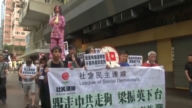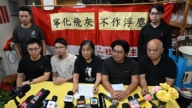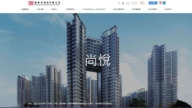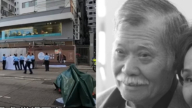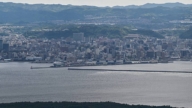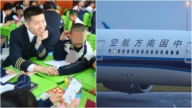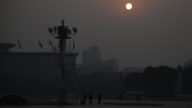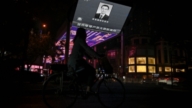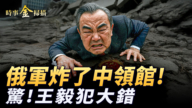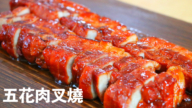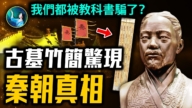【新唐人2013年08月29日讯】亚洲首富李嘉诚继7月份宣布出售香港大型超市连锁店百佳之后,最近再传将以港币70多亿的底价,叫卖上海陆家嘴写字楼物业的计划。近年来,外界注意到,李嘉诚将投资重心逐渐转向海外。经济评论人士认为,李嘉诚的资本转移可能跟中国经济下滑的形势和人民币在国际上不被认可有关。
大陆媒体《财经网》8月27号引述《观点地产网》的一篇文章。文章说,8月21号,据大陆媒体引述多名知情人士透露,李嘉诚旗下公司长江实业有限公司,打算出售它在上海陆家嘴开发的“东方汇经OFC”,售价60亿元人民币以上。这消息随即引起各大媒体纷纷报导。
东方汇经中心是长江实业在上海的第一栋甲级办公楼,位于陆家嘴金融核心区,也是小陆家嘴区域最后一个动工的甲级办公楼项目,毗邻上海中心、环球金融中心及金茂大厦。原计划在明年落成,去年底已经开始招租,但还未落成就传来放售的消息。
对于出售的消息,长实方面在接受媒体采访时仅透露,目前这个项目一切准备工作均在进行之中,暂无相关信息可以更新披露。不过,在8月23号,长实执行董事赵国雄则透露,集团目前准备将这个项目长期持有收租,但也不排除如有合理出价会考虑出售。
中国经贸研究会特约研究员巩胜利介绍说,近年李嘉诚也一直在出售大陆的百佳分店。
百佳超级市场是和记黄埔旗下屈臣氏集团的连锁超级市场,1973年在香港岛赤柱设立首间百佳超级市场。现时在香港、澳门和中国大陆华南地区有超过345间分店,其中超过50间为超级广场及购物广场,占全香港超级广场总数7成以上。
这次李嘉诚撤资上海,据说对中共震动相当大。大陆媒体也纷纷猜测李嘉诚的投资去向,还将李嘉诚早前出售百佳的举动联系在一起,形容为超人“撤资香港”、“投资重心西移”。事实上,有资料显示,近3年来李嘉诚已调配超过1,600亿港元在海外购买资产,地点多集中在欧洲和加拿大。
李嘉诚将投资重心从香港和大陆转向西方欧美国家,巩胜利认为,中国经济下滑是一个原因。
中国经贸研究会特约研究员巩胜利:“英美全球40个高收入国家,他们经济的增长速度一般来讲达到2%,都是很高了。那中国现在是7%,在发展中国家里面也是最高阶段,如果作为投资人,最高阶段时间出手,我觉得这是正常的。如果是考虑到经济有下行的危险,那总比你下行之后出手,收益要高出很多。”
巩胜利分析,李嘉诚投资重心西移的另一个原因是,人民币在国际上不被承认。他指出,美元、欧元等国际货币跟人民币不兼容。这是中国货币改革到现在,64年来一直存在的瓶颈。世界银行和国际货币基金组织认可的国际货币有13种。人民币不在其中。
巩胜利:“而且人民币在全球的市场占用率非常低。人民币目前只占有0.8%,不到1%,而美元是超过了63%,欧元大概占了26%左右。所以你从这来看,持有人民币来经营国际事务,这肯定是渺茫的。那他转移到欧洲、加拿大或者美国,我觉得这是大势所趋。”
不过,有大陆媒体揶揄李嘉诚的撤资实属“无奈”,称之为“长实系兵败上海”。
上海维权律师郑恩宠分析说,李嘉诚在香港的投资,是在香港法律的条件下获利,但在上海、大陆的投资,完全要投靠当局。比如,位于上海市静安区东北部的黄金地皮“东八块”,当年李嘉诚就竞争不过前上海首富周正毅。
通过李嘉诚在上海遇到的种种失败,郑恩宠奉劝香港各级投资者,“想挣共产党的钱挣不到,比周正毅还要惨。”周正毅在与李嘉诚的竞争中虽然获胜,但一年之后,2003年他被举报锒铛入狱。上海当局随即将“东八块”回收。
采访编辑/秦雪 后制/陈建铭
Li Ka-shing Transfers Investment Abroad
Li Ka-shing, the richest man in Asia, recently announced
the sale of his Shanghai Lujiazui office for over seven billion
HK dollars following the announcement of the sale of a large
supermarket chain PARKnSHOP in July.
In recent years, observers noticed that Li shifted
his investment focus overseas.
Economic commentators believe that Li’s capital transfer
has a lot to do with China’s economic downturn and RMB not being recognized internationally.
On August 27, Mainland media outlet, Financial Network,
quoted an article from View Real Estate Network which said
that Li Ka-shing’s Cheung Kong Holdings Ltd. intends to sell
the Credit Agricole by OFC, a development in Shanghai Lujiazui, which is priced at more than 6 billion yuan.
This news was immediately reported
by many Mainland media outlets.
Credit Agricole was the first office building in Shanghai
by Cheung Kong Center.
It is also the last office building to have gone
under construction in Lujiazui.
It is located at the Lujiazui financial center, adjacent to
Shanghai Center, World Financial Center and Jin Mao Tower.
Originally, its completion was scheduled for 2014.
It began leasing at the end of 2012.
The building has not yet completed, yet it is up for sale.
Cheung Kong Holdings Ltd. revealed during an interview that
all preparatory work is underway, but there is no new information.
However, on August 23, Justin Chiu, director of Cheung
Kong, disclosed that the property will be held as long term
rentals, but he does not rule out the possibility of sale given
any reasonable offers.
Gong Shengli, China Economic Research fellow, said
Li Ka-shing has been selling PARKnSHOP stores in Mainland in recent years.
PARKnSHOP is a subsidiary of Hutchison Whampoa Group’s
supermarket chain, with the first setup at Stanley Island, Hong Kong in 1973.
At present, there are more than 345 stores in Hong Kong,
Macau and southern China.
More than 50 are supermarkets and shopping malls combined,
accounting for seven percent of the total number of Hong Kong supermarkets.
It is learned that Li’s divestment in Shanghai was rather
shocking to the Chinese Communist Party (CCP).
Mainland media have speculated the directions
of Li Ka-shing’s next investment.
Some called it “divestment Hong Kong" or
“investment focus westward shift."
In actuality, Li Ka-shing has deployed more than 160 billion
HK abroad in the last three years, mostly to Europe and Canada.
Gong Shengli thinks China’s economic downturn is one
of the reasons Li Ka-shing shifted his investment focus.
Gong Shengli: “In the Anglo-American world, among 40
high-income countries, the economic growth rate is two percent in general, which is considered very high.
China’s economic growth rate is seven percent,
the highest of developing nations.
As an investor, it is normal to act during the high,
particularly if there is an economic downside risk.
After all, it is better to act before the economy goes down."
Gong Shengli believes that there is another reason
for Li Ka-shing’s investment shift.
Renminbi (RMB) is not an internationally
recognized currency.
Gong points out that the US dollar, Euro and other
international currencies are incompatible with RMB.
This has been a bottleneck for RMB not among the 13
international currencies even after 64 years of reform.
Gong Shengli: “RMB’s usage rate is very low
in the global market.
Yuan currently accounts for only 0.8%, the dollar is more
than 63%, and the euro probably accounted for about 26%.
Now, you can see the chance of RMB operating
in international affairs is very slim.
Li Ka-shing moving his focus to Europe, Canada or US
is only a matter of course."
However, Mainland media ridicule Li’s move as “helpless,"
saying he was defeated in Shanghai.
Zheng Enchong, Shanghai human rights lawyer, said that Li’s
investments in Hong Kong are profitable due to Hong Kong law.
However, in Shanghai, it is up to local authorities to decide.
For example, in the northeastern part of Jing’an District,
Shanghai’s golden land known as “East Eight," Li Ka-shing
could not compete with Zhou Zhengyi, the former richest man in Shanghai.
Li Ka-shing encountered many failures in Shanghai.
Zheng Enchong warns all levels of investors in Hong Kong
that if they want to earn money from the CCP, they
will end up more miserable than Zhou Zhengyi.
Zhou Zhengyi defeated Li Ka-shing in 2002,
but received the first of two jail sentences a year later.
Afterwards, Shanghai authorities reclaimed East Eight.


